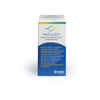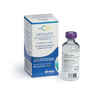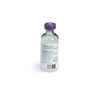Vetsulin (Porcine Insulin Zinc Suspension) - Insulin Injectable for Dogs & Cats
This is a prescription item
We’ll collect your veterinarian’s information at checkout to authorize the prescription.

Don’t have a veterinarian? Book an appointment with Vetster
 Temporarily Out of Stock
Temporarily Out of Stock
 Thank you, we will notify you when this product is available.
Thank you, we will notify you when this product is available.
What is Vetsulin Insulin?
Vetsulin (porcine insulin zinc suspension) is the first and only FDA-approved insulin available in the U.S. for treating diabetic dogs and cats. Vetsulin controls levels of glucose in the blood to help alleviate diabetic symptoms. Vetsulin requires a prescription from your veterinarian. Vetsulin Insulin requires refrigeration and must be kept at refrigerator temperatures at all times. To ensure proper temperature, it requires overnight shipping at an additional cost.
Suitable for:
Dogs or Cats with Diabetes Mellitus
Benefits:
- #1 AAHA Recommended Insulin for Dogs
- The first FDA-approved insulin created specifically for use in dogs and cats with diabetes
- Controls blood glucose levels and lessens clinical signs of diabetes
- Vetsulin has proven safety and efficacy for the management of diabetes mellitus in dogs and cats
- Easy dosing minimizes chance for error and is less intimidating for pet parents
- Minimizes pet discomfort
- Ergonomically designed for easy handling, even for pet parents with visual or manual dexterity issues
- Multi-dose insulin cartridges require fewer steps to prepare doses
- Portable and easy to take on the go (refrigeration of cartridges is required)
- Two Ways to Administer Insulin:
- Use either U-40 Insulin Syringe.
- VetPen with Vetsulin Cartridge and Needles
How does Vetsulin Work?
Vetsulin is an insulin product used to treat diabetes mellitus in dogs and cats. It is a porcine insulin zinc suspension that works by regulating blood glucose levels, similar to how insulin functions naturally in the body. In diabetic pets, the pancreas either does not produce enough insulin or the body's cells do not respond properly to insulin. Vetsulin provides an external source of insulin, helping to control blood glucose levels. By replacing or supplementing the pet's natural insulin, Vetsulin allows glucose to enter cells, where it can be used for energy. This helps prevent the dangerous highs (hyperglycemia) and lows (hypoglycemia) in blood sugar that characterize diabetes.
Cautions:
Vetsulin is for use in animals only. Dogs and cats known to have an allergy to pork or pork products should not be treated with Vetsulin. Vetsulin is contraindicated during periods of hypoglycemia. Animals with severe ketoacidosis, anorexia, lethargy, and/or vomiting should be stabilized with short-acting insulin and appropriate supportive therapy before use. As with all insulin products, careful patient monitoring for hypoglycemia and hyperglycemia is essential. Overdosage can result in profound hypoglycemia and death. Progestogen and glucocorticoid use should be avoided. The safety and effectiveness of Vetsulin in puppies, kittens, breeding, pregnant, and lactating dogs and cats has not been evaluated. Keep out of reach of children. Avoid contact with eyes. In case of contact, immediately flush eyes with copious amounts of water for at least 15 minutes. Accidental injection may cause clinical hypoglycemia. In case of accidental injection, seek medical attention immediately. Exposure to the product may induce a local or systemic allergic reaction in sensitized individuals. Insulin requires refrigeration. Overnight shipping is required and additional shipping charges are applicable. Use contents of Vetsulin Insulin within 42 days of the first puncture. Rarely, allergic reactions can occur. Seek emergency veterinary medical attention if your pet experiences hives, difficulty breathing, or swelling lips, tongue, or face.
Brand Name:
Vetsulin
Generic Name:
Porcine Insulin Zinc Suspension
What is the most important information I should know about Vetsulin?
Diabetes mellitus is a disease where the body produces insufficient insulin. The low insulin levels may result in high blood glucose that could produce the following changes in a dog or cat: increased thirst, urination and appetite, weight loss, high levels of glucose in the urine, ketones in the urine, cloudy eyes and vision loss (diabetic cataracts). Vetsulin is not a cure for diabetes mellitus, it can control or eliminate many of the complications associated with the disease (such as excessive thirst, urination, and weight loss) and prevent development of life threatening ketoacidosis. Response varies from animal to animal but can be dramatic. In most cases improvement can be seen within a few days. In cats, treatment may lead to diabetes remission (insulin injections no longer required). If Vetsulin is discontinued or not given as directed, the signs of diabetes will likely return and life-threatening complications such as ketoacidosis may develop.
What should I discuss with my veterinarian before giving Vetsulin?
Do not give Vetsulin if your pet is allergic to pork or pork products. Before using Vetsulin, tell your veterinarian if your pet has any other medical conditions such as: vomiting and/or diarrhea, shows signs of extreme drowsiness or fatigue (lethargy), and/or shows signs of severe ketoacidosis. Tell your veterinarian if your pet takes any other prescription or over the counter medications, including vitamins, minerals, and herbal supplements. Tell your veterinarian if your dog or cat has any liver or kidney disease; inflamed pancreas (pancreatitis), underactive (hypo) or over-active (hyper) thyroid, Cushing's disease or if your dog or cat is pregnant, nursing, or if you plan to breed your dog or cat.
How should this medication be given:
Vetsulin should be given according to your veterinarian's instructions. Vetsulin by 10 ml vial is given using a U-40 syringe only. Use of a syringe other than a U-40 syringe will result in incorrect dosing. Just prior to use, shake the vial thoroughly until a homogeneous, uniformly milky suspension is obtained. Do not reuse a syringe. Dispose of all syringes in an appropriate puncture-resistant disposal container. Vetsulin should be stored in an upright position under refrigeration (36º-46º F). Do not freeze. Protect from light. Keep this medication out of the reach of children and pets.
What happens if I miss giving a dose?
Follow your veterinarian's directions if you miss giving a dose of Vetsulin. To prevent missed doses, be sure to always have enough Vetsulin on hand.
What happens if I overdose my pet:
Contact your veterinarian immediately if you inject more than the prescribed amount of Vetsulin. Overdosage can result in profound hypoglycemia and death.
What should I avoid while giving Vetsulin?
Vetsulin should be given to dogs and cats only. Vetsulin should not be administered to humans. Call a physician immediately if you accidentally inject yourself with Vetsulin. Do not give a dose of Vetsulin to a pet experiencing an episode of low blood glucose (hypoglycemia). Common causes for hypoglycemia include excessive doses of insulin, failure to eat, accidental doubling of insulin dose, and strenuous exercise.
What are the possible side effects of Vetsulin?
Rarely, allergic reactions to insulin can occur. Seek emergency veterinary medical attention if an allergic reaction is experienced (difficulty breathing, swelling of the lips, tongue, or face, or hives). Other serious side effects can occur with or without warning. The most common insulin-related side effect is low blood sugar (hypoglycemia) with symptoms that include; lethargy, staggering gait, seizure or coma. Contact your veterinarian immediately if your pet has a medical problem or side effect from Vetsulin therapy. Other side effects may occur. Talk to your veterinarian about any side effect that seems unusual or bothersome to your pet.
What other drugs will affect Vetsulin?
Vetsulin can be given with other medications, but the dose may need to be adjusted due to the medication resulting in either increased or decreased insulin requirements. Progestogen (such as megestrol) and glucocorticoids (such as cortisone, prednisone, dexamethasone, triamcinolone) should be avoided during Vetsulin therapy. Progestogen, glucocorticoids, and certain endocrine diseases may counter the effect of insulin. Do not give any other prescription or over the counter medications, including vitamins, minerals and herbal products, without first talking to your veterinarian or pharmacist during treatment with Vetsulin.
Storage:
Store in an upright position under refrigeration at 2°C to 8°C (36°F to 46°F). Do not freeze. Protect from light. Use contents within 42 days of first puncture.
Vetsulin Insulin Directions:
- FOR SUBCUTANEOUS INJECTION IN DOGS AND CATS ONLY.
- VialsUse of an insulin syringe other than a U-40 syringe for the 10 ml vial will result in incorrect dosing.
- Vetsulin Vetsulin is available in 10ml vials given subcutaneously (SQ) using a U-40 insulin syringe
- Shake the vial thoroughly until a homogeneous, uniformly milky suspension is obtained.
- Foam on the surface of the suspension formed during shaking should be allowed to disperse before the product is used and, if required, the product should be gently mixed to maintain a homogeneous, uniformly milky suspension before use.
- Clumps or white particles can form in insulin suspensions: do not use the product if visible clumps or white particles persist after shaking thoroughly
Did you know?
Diabetes typically affects dogs aged 4 to 14, with unspayed females being twice as likely to develop it compared to males. Breeds at higher risk include Cocker Spaniels, Dachshunds, Doberman Pinschers, German Shepherds, Golden Retrievers, Labrador Retrievers, Pomeranians, Terriers, Toy Poodles, Miniature Schnauzers, Keeshonds, and Samoyeds. In cats, diabetes is more common in middle-aged to older, neutered males. Burmese and Siamese breeds have a higher-than-average risk, though any cat can develop diabetes.
Vetsulin Insulin Dosage:
| Weight | Dosage |
|---|---|
| All weights | Vetsulin should be given according to your veterinarian's instructions using a U-40 syringe or VetPen only |
| Weight | Dosage |
|---|---|
| All weights | Vetsulin should be given according to your veterinarian's instructions using a U-40 syringe or VetPen only |
| Horses |
|---|
| Do not use! |
Vetsulin Ingredients:
| Active Ingredients (per ml) | Amount |
|---|---|
| Porcine Insulin Zinc Suspension | 40 U |
| Zinc Chloride | 0.08 mg |
| Sodium Acetate Trihydrate | 1.36 mg |
| Sodium Chloride | 7.0 mg |
| Methylparaben (preservative) | 1.0 mg |
| *pH is adjusted with hydrochloric acid and/or sodium hydroxide. | |
 Swipe
Swipe
 AutoShip
AutoShip
Use code SAVE35
Customers also boughtView All
 Swipe
Swipe





















































